
On Mar. 3, the Supreme Court (SC) passed a critical judgement on the appointment of Election Commissioners. It is a judgement crucial for India’s journey to becoming a more robust democracy. After all, strong Election Commission is the facilitator of free and fair elections, core of an authentic democracy.
The five-Judge Constitution Bench said that henceforth, the Chief Election Commissioner (CEC) and Election Commissioners (ECs) would be appointed by the President of India just like before, but…
Unlike the earlier years, when the Law Minister would suggest candidates to the Prime Minister, who in turn would ask the President to make appointments, from now on, there will be a recommendation panel.
This panel will comprise the Prime Minister, the Chief Justice of India and the Leader of the Opposition (or leader of the single largest Opposition party). No more will a CEC be appointed simply on the Prime Minister’s or Government’s recommendation. A good policy.
Of course, many have said the Judiciary is overstepping its bounds, calling it judicial interference. It may be so, but someone has to do something. The Election Commission and a few CECs have been demanding this law be formulated for decades.
Article 324(2) mandates the Parliament to enact a direction to appoint CEC and ECs. It has been 70 years, and no law has been formulated!
The Supreme Court order comes at an interesting juncture because a vacancy in the Election Commission will arise early next year when Election Commissioner Anup Chandra Pandey retires. He is set to retire on Feb. 14, and the announcement of the 2024 Lok Sabha may be in March.
When the CBI Director can be appointed by the recommendation of a committee comprising the PM, the Opposition party leader and the Chief Justice of India, why not the Chief Election Commissioner and Election Commissioners?
Law for appointment of CEC and ECs apart, it is more critical that the Election Commissioners are fearless. For this to happen, promotion to CEC must be through seniority and not at the Government’s discretion. Also, the termination process for ECs should be similar to that of the CEC, which is through impeachment and not through the recommendation of the CEC.
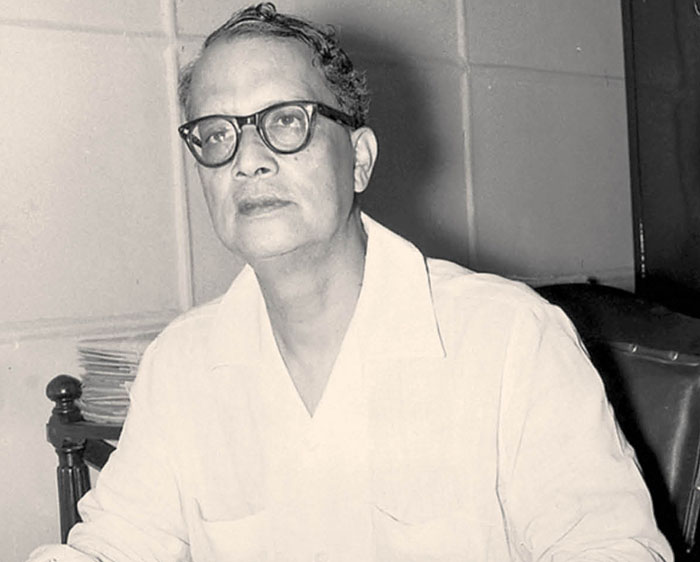
While the Supreme Court is correct to step in, it must realise, just like how justice depends on the individual character of a Judge, free and fair elections also depend on the courage and character of the Election Commissioners.
This matter of character reminds me of Sukumar Sen: The first, the best, yet forgotten…
For many of us, the most famous Election Commissioner was T.N. Seshan. But there was one more, much greater. A man who must be credited for the robust democracy that we proudly proclaim as the ‘largest democracy in the world’ — the first Election Commissioner of India — Sukumar Sen.
In his book, “India after Gandhi,” Ramachandra Guha talks about this great man.
India got its Election Commission two years after independence, and Sukumar Sen was appointed Chief Election Commissioner in March 1950. The then PM Jawaharlal Nehru wanted an election soon, in 1951.
But Sen, an Indian Civil Service man and a Mathematician, understood the numbers he was dealing with and postponed it to 1952. After all, he had to deal with 176 million Indians who could vote, of which 85 percent could not read or write.
Each one had to be identified, named and registered. Sites for polling stations had to be selected, and honest and efficient polling officers had to be identified. Additionally, there were to be concurrent elections to the State Assemblies!
The polls were finally scheduled for the first months of 1952. Guha quotes an American observer who wrote, “Some numbers will help us understand the scale of Sen’s enterprise. At stake were 4,500 seats — about 500 for Parliament, the rest for the provincial assemblies. 2,24,000 polling booths were constructed and equipped with 2 million (20 lakh) steel ballot boxes, for which 8,200 tonnes of steel were consumed; 16,500 clerks were appointed on contracts to type and collate the electoral rolls by constituency; about 3,80,000 reams of paper were used for printing the rolls; 56,000 presiding officers were chosen to supervise the voting, aided by 2,80,000 helpers and 2,24,000 Policemen.”
Sen also had to deal with geographical problems, and so bridges had to be specially constructed across rivers; in the case of small islands in the Indian Ocean, naval vessels were used to transport boxes and electoral rolls to the booths.
Apart from geographical problems, Sen also had to deal with social problems, such as women in northern India not giving their names. Instead, they wanted to be registered as “A’s mother or B’s wife.” Sukumar directed his officials to either get the women to give their names or leave them out. This led to a furore, but Sen said this prejudice would make the women register with their real names the next time.
Then, to make voting effective, he came up with the idea of providing symbols to help illiterate voters. To make it even more effective, he used multiple ballot boxes, a box for each party with its symbol on it so the voter could drop their ballot in that box in case they got too confused.
Then he introduced the use of indelible ink to avoid impersonation. He also used media — a documentary was made on the duties of the electorate and shown in more than 3,000 cinemas. The election was a success.
He once again was the Commissioner in 1957 for the 2nd Lok Sabha. By this time, 193 million Indians were registered to vote, and 95 percent of the women were registered voters! This second run, too, was a grand success, and it established India as a functioning democracy.
This shows how one sincere officer, one patriotic officer, can put a nation on a progressive path and prevent it from straying into chaos. One will appreciate this when one considers that just as India was getting ready to vote in 1952, in neighbouring Pakistan, its first Prime Minister, Liaquat Ali Khan, was assassinated. Since that day, Pakistan has never been able to become a genuine democracy.
Indeed, Indian democracy has come a long way. From 146 million voters in the 1st Lok Sabha to 912 million in the 17th. All thanks to the glorious start given by Sukumar Sen.
Sukumar Sen went on to assist other countries with their elections and is fondly remembered in those countries but sadly forgotten here in his motherland.
Let’s hope if the EC gets its own Secretariat, Sen will be honoured with an installation of his bust instead of some politicians.
e-mail: [email protected]



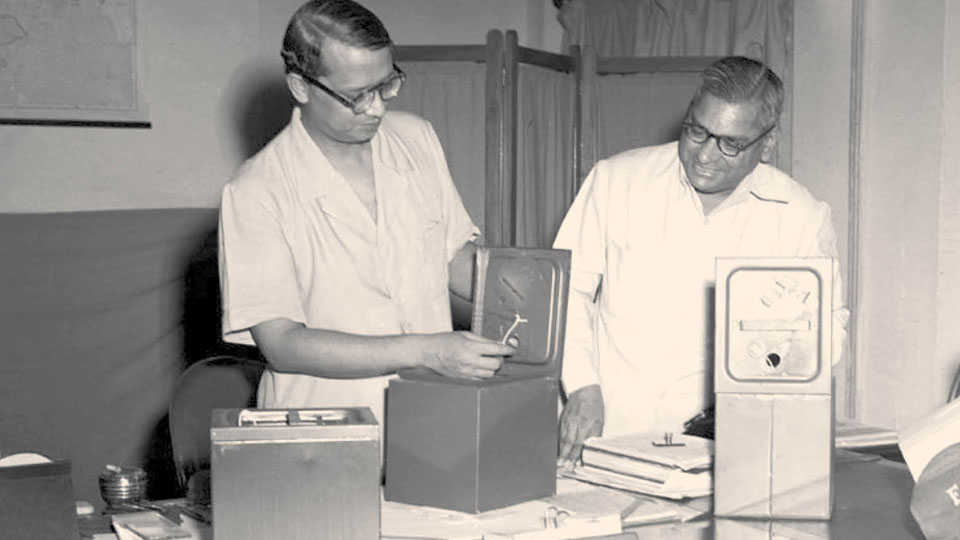
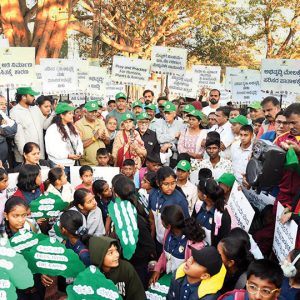
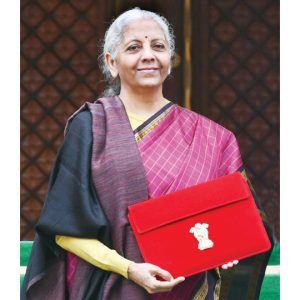
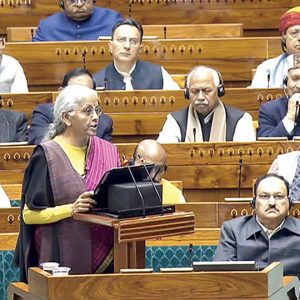
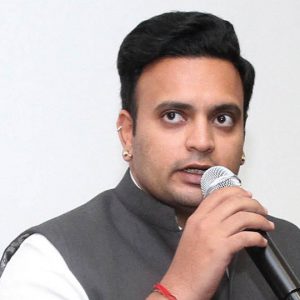
@Vikram talks about elections which this Sen the chief election commissioner assuring to be free and fair.
I have some news for him. During 1960s general elections, I was a presiding officer in polling stations in successive elections.
There were massive impersonations, and skull duggeries.
In the polling station in Kumbara Koppal at the outskirts of Mysore city, the impersonations were massive, and when we-me, the presiding officer and my team of polling officers stopped a large number of them voting twice, or representing some one else, the representatives of the political parties who engineered the above malpractice got agitated, and the chief electoral commission for Mysore city -the DC rrived and after listening to us, quietly took us aside, and advised to allow what is happening, if we cared for our lives. Later, we learned that this DC was in the pockets of those political parties.
In another general election, as Presiding officer of a polling station in the city, me and my team refused voting by those who we suspected as impersonators. Again, the DC at that time , who was the chief election commissioner for the region, intervened and asked us us to let all of them in to vote.
That was it, and I refused work as presiding officer in any election that followed. I learned that the tactics of malpractice became better. No impersonations, but after the election day came to an end, the polling stations close, and the ballot boxes were escorted into a collection point, which was supposed to be heavily guarded, and always one senior election official present all night, these ballot boxes were switched by equal number of ballot boxes delivered from outside, and the candidate of the ruling party won easily with a large number of votes!
Now, it is electronic votes-easy to manipulate at the data base end where votes appear!
Fair elections in India? That is the biggest joke.
@Vikram please stop this nonsense of Indian democracy and fair elections.
Indian election commission has been unable to stop massive malpractices occurring in the polling stations and after the ballot boxes are collected with voting finished and stored in a so called securing location, where they have been known to be replaced by another set of ballot boxes containing fake votes.
Indelible ink has not stopped impersonation of voters. Why try impersonation, when it is easier to replace those ballot boxes containing votes by another set of ballot boxes with fake votes. The election officials and the police are bribed heavily to carry out this malpractive.
Indian democracy is a mockery.
I completely agree with Raga that democracy has died in India. Narendra Modi must learn the value of democracy from Gandhi family.
Narendra Modi Ji needs to learn democracy from great grandfather of Rahul Gandhi, who became first PM of India inspite of losing to Sardar Patel in voting. Chacha won just 1 vote while Patel Ji won 14 votes. Great show of democracy.
If Narendra Modi doesn’t have guts to learn from what happened 75 years ago, he can go around 40 years back and take lessons of democracy from grandmother of Rahul Gandhi. She had announced Emergency as a great display of democracy. She had arrested all politicians, many government servants and many media persons because of no fault of theirs.
Narendra Modi Ji can take a lesson from Indira Gandhi’s another act. She banned legend Kishor Da from singing on TV & Radio because he refused to advertise for her. Great lesson it can be for Modi.
If Modi doesn’t want lessons from her, he can take lessons of democracy from Rahul’s Father, Shree Rajiv Gandhi Ji. He had turned Supreme Court’s decision to ensure that a poor Muslim lady doesn’t get maintenance from her ex husband.
If Modi is scared of Rajiv Gandhi, he can take lessons from Shree Sanjay Gandhi who banned movie made on “Population Control Bill” because he did not like that movie personally.
If Modi doesn’t want to go back to 20th century, he can take lessons of democracy from 21st century from Rahul’s mother. Modi can watch those videos wherein Rahul’s mother sat on official chairs with foreign delegates while the PM of the country took the chairs kept on side for guests.
If Modi needs lessons of democracy from another ex PM, he can recall what happened with one of the greatest PMs of the country, Shree Narshima Rao. His dead body was refused to enter Congress Office in Delhi. It was sent to Hyderabad against the wishes of Rao’s family. Rao’s funeral was reportedly shown on TV as dogs pulled up bones from his half burned body at night after funeral.
If Modi wants lessons of democracy from a youth, he can take them from Rahul’s sister Priyanka didi who was announced as the state president of Congress for the biggest state of India. She had absolutely no political experience but took the highest position for Congress in UP.
Most importantly Modi can take lessons from Rahul Gandhi, who torn the ordinance signed by Prime Minister of India, passed by President of India in parliament. He threw those papers on the floor of the parliament. That’s called democracy.
I can list down many more such incidents from which Modi can take lessons of democracy but Modi is a coward, he doesn’t respect democracy the way Congress does it.
Still worse, Modi stopped 2 young potential future PMs who inherited Prime Minister genes by using his popularity with billions of stupid voters who can’t read English even. That is not how democracy shouldvwork.Modi deserves to bi imprisoned for life. He is a maniac. He never made even his family members rich. What a wasted life!!